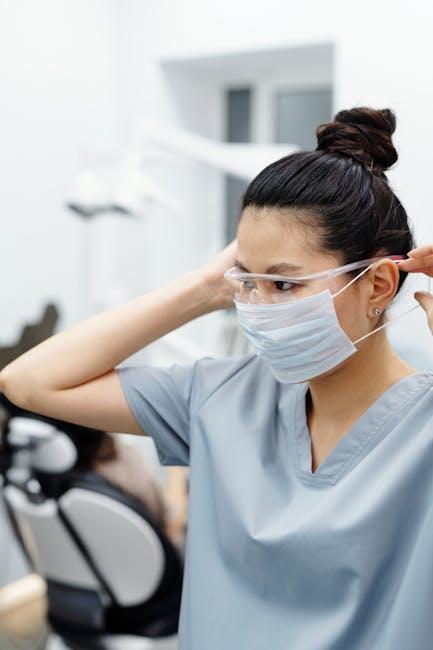
Dental Infections Pose Risks for Hospitalized Patients With Rheumatoid Arthritis – AJMC
Rheumatoid arthritis (RA) is a chronic autoimmune disorder that affects millions worldwide, primarily targeting joints but also influencing other areas such as oral health. Recent studies published by the American Journal of Managed Care (AJMC) highlight a critical yet often overlooked concern: dental infections pose serious risks for hospitalized patients with rheumatoid arthritis. This article dives deep into this worrying connection, providing an overview of how dental infections escalate complications in RA patients, preventive strategies, and practical tips to safeguard oral and overall health.
Understanding Rheumatoid Arthritis and Its Impact on Oral Health
Rheumatoid arthritis is an autoimmune disease characterized by inflammation and pain in the joints. However, its systemic nature means inflammation can extend beyond the joints, affecting organs, blood vessels, and oral tissues. RA patients are more prone to periodontal disease, dry mouth (xerostomia), and other oral infections due to immune dysregulation and medication side effects.
- Immune system impairment: RA and its treatments often weaken the body’s natural defenses.
- Inflammatory burden: Chronic inflammation aggravates gum tissue vulnerability.
- Medication effects: Drugs like corticosteroids or immunosuppressants can reduce saliva and healing ability.
Why Dental Infections Are a Serious Concern for Hospitalized RA Patients
Hospitalized patients with RA face increased risk when dental infections develop. According to AJMC findings, untreated oral infections can lead to systemic complications including sepsis, delayed recovery, and longer hospital stays. Here’s why dental infections escalate risks in this group:
1. Increased Susceptibility to Infection
RA patients often take immunosuppressive medications that reduce the ability to fight infections, making dental infections more likely to spread rapidly.
2. Systemic Inflammation Synergy
The inflammation from RA can exacerbate infections in the mouth, leading to more severe periodontal disease and higher bacterial loads, which may enter the bloodstream.
3. Higher Risk of Complications
Dental infections can result in bacteremia (bacteria in the blood), increasing the risk for endocarditis, pneumonia, and other serious conditions during hospital stays.
4. Treatment Interference
Dental infections complicate the management of RA and other comorbidities due to the need for additional antibiotics or surgical interventions, potentially interrupting essential RA therapies.
| Complication | Impact on Hospitalized RA Patients |
|---|---|
| Sepsis | Severe bloodstream infection leading to organ failure |
| Delayed Recovery | Prolonged hospitalization and slower healing |
| Increased Mortality Risk | Higher death rates linked to infection complications |
| Antibiotic Resistance | Complicates treatment due to resistant oral bacteria |
Practical Tips to Reduce Dental Infection Risks in RA Patients
Prevention and early intervention are key to reducing dental infection risks. Hospital staff, caregivers, and RA patients themselves can take the following steps:
- Regular dental screenings: Encourage RA patients to have dental check-ups, especially before planned hospitalizations.
- Maintain rigorous oral hygiene: Brushing twice daily with fluoride toothpaste, flossing, and using antibacterial mouthwash can reduce bacteria buildup.
- Communicate medications: Inform dentists and hospital teams about RA medications to manage risks effectively.
- Manage dry mouth: Use saliva substitutes and stay hydrated to prevent oral dryness that fosters infection.
- Promptly treat infections: Seek early dental care at the first sign of tooth pain, swelling, or gum bleeding.
Expert Advice from Dr. Marianne Lopez, Rheumatologist: “Dental health is often underestimated in patients with RA, but we know that oral infections can significantly worsen systemic inflammation and complicate treatment. Integrating dental care into RA management protocols is essential.”
The Benefits of Coordinated Care Between Rheumatologists and Dentists
Integrated care between specialists improves patient outcomes. When rheumatologists and dentists collaborate, they can:
- Identify early signs of dental infection linked to RA disease activity
- Adjust immunosuppressive therapies around dental procedures safely
- Facilitate patient education addressing both joint and oral health
- Prevent hospital admissions caused by preventable dental infections
Case Study: Hospitalized RA Patient Avoids Complications Through Early Dental Intervention
Jane, a 62-year-old woman with longstanding RA, was admitted due to a flare-up. Upon admission, the hospital team identified untreated periodontal disease with signs of infection. A dental consultation was expedited, and treatment commenced immediately. Jane’s coordinated care helped prevent sepsis, shortened her hospital stay, and enhanced her recovery.
Conclusion: Prioritize Dental Health to Safeguard Rheumatoid Arthritis Patients
The connection between dental infections and hospitalization complications in rheumatoid arthritis patients is clear and pressing. As AJMC studies highlight, proactive management of oral health is an indispensable part of improving outcomes for hospitalized RA patients. By understanding the risks, practicing preventive oral care, and fostering coordinated healthcare approaches, patients and providers can significantly reduce infection-related complications.
Whether you are a patient, caregiver, or healthcare professional, staying vigilant about dental infections can save lives and improve quality of care. Don’t wait until symptoms worsen—prioritize dental health as an integral part of managing rheumatoid arthritis today.


